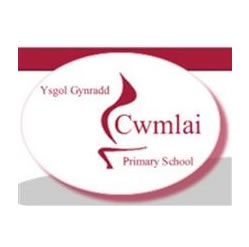
Organisation: Cwmlai Primary School
Intervention: Catch Up® Literacy
Submitted by: Ann Richards
Background
Cwmlai Primary School is situated in Tonyrefail (approx. 12 miles north of Cardiff) which is classed as a socially deprived area.
The current number on roll is 437. Pupils are taught in both single and mixed age classes. There are currently 16 teachers, including the Head teacher, with 15 classes including two nurseries. There are 18 support staff, a full-time chief administrator and 2 part-time administrative assistants.
Training for Catch Up® Literacy was offered as an intervention by Rhondda Cynon Taf Local Authority in 2002. Cwmlai took this opportunity, and two staff gained OCN accreditation. Since then, a further four staff have achieved their OCN accreditation and are now qualified to deliver the programme.
To date, nearly 200 pupils have benefitted from the Catch Up® intervention at Cwmlai, and it is still recognised by teachers and parents as a positive, successful intervention.
Pupils are selected for Catch Up® following Salford reading tests, which are administered three times per year. Initially, pupils with a reading age of up to 12 months behind their chronological age are selected for the programme; this criteria is then increased to 18 months and below, as spaces become available.
Implementation
The Catch Up® coordinator liaises with class teachers to select suitable candidates from the Salford Reading data. Consent letters are sent to parents, who are invited to attend an informative meeting about the intervention where leaflets are issued and computer games are demonstrated.
The Catch Up® coordinator organises timetables for each Teaching Assistant, monitors all paperwork and observes Catch Up® sessions each term, giving feedback to the deliverers. Catch Up® team meetings are held each term, in order to maintain high standards and share good practice.
The Catch Up® coordinator ensures that there is a suitable and adequate supply of books in the Catch Up® library, purchasing additional resources as necessary.
The Catch Up® coordinator completes all Catch Up® data, which is sent to the Head teacher and the Governing Body in order to keep them informed of the positive impact Catch Up® has on our pupils. Details of the Catch Up® intervention are disseminated to all staff at an annual meeting to raise awareness to any new staff members.
The Catch Up® coordinator arranges Catch Up® Assemblies, where pupils’ achievements are celebrated. Each pupil graduating from Catch Up® is presented with a certificate.
Cwmlai is very proud of its Catch Up® Team, who provide high quality sessions to our pupils. The end result is “children who are readers, and not just children who can read.”
Case Study 1 - Catch Up® Literacy
Child A entered Year 3 with a reputation for being very disruptive and was reluctant to participate in classroom activities. Child A did not meet the Catch Up criteria when tested using the (old) Salford test in September 2013. However, when retested in March 2014, he was selected for the intervention, having a reading age of 6 years 4 months (18 months behind his chronological age)
Child A responded positively from the outset to working “one-to-one”. He was totally engaged in sessions, giving his best in all aspects of the programme. Child A moved through the Catch Up® Literacy levels from 3 to 8, and left the intervention with a reading age of 9 years 1 month (6 months ahead of his chronological age).
Reading became a means of calming Child A when he became agitated in class. His enthusiasm for reading developed significantly, and he now regularly will choose to spend class time in the book corner, reading for his own pleasure. In class, he is gradually participating more frequently in activities and there has been a measurable improvement in his behaviour.
Aims
In our school, the targets we set:
• challenge all children to do better;
• take into account each child's starting point for learning;
• encourage children to discuss and review their progress with teachers regularly;
• involve parents or carers in their child's learning;
• help governors to agree priorities for the SDP;
• lead to more focused teaching and learning;
• help us to make judgements about how well our school is doing when compared with all schools and with similar schools.